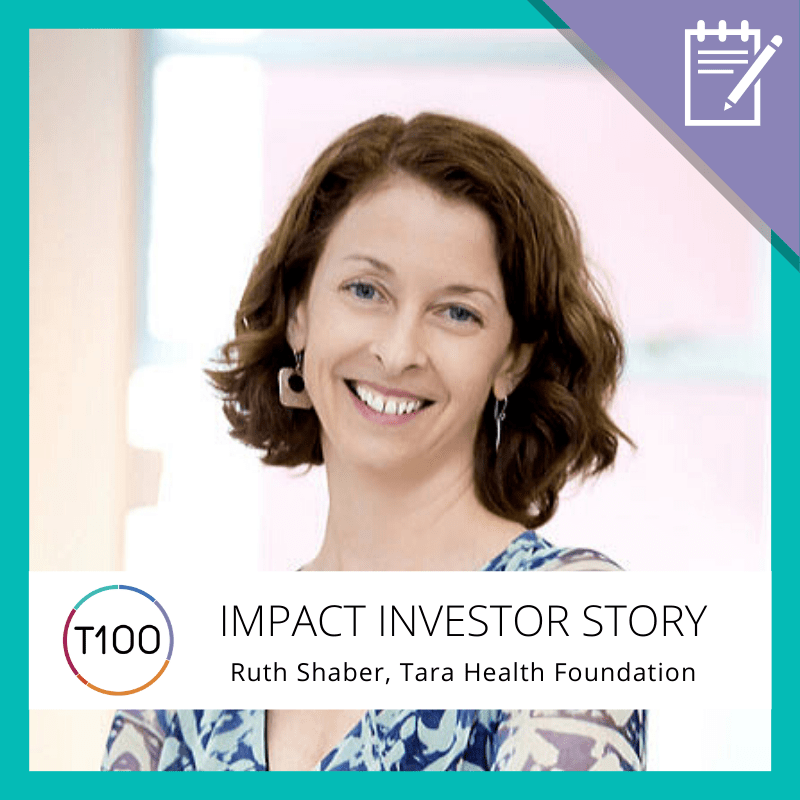Dr. Ruth Shaber
Founder and President, Tara Health Foundation
Dr. Ruth Shaber is one of the pioneering Toniic members building a 100% values-aligned investment portfolio. By continuously pursuing a deeper positive net impact across all asset classes, she’s blazing a trail for investors who want to activate their entire portfolio to achieve a focused mission. She embodies a new standard for investors who are going further, faster and deeper into impact—and who are coalescing around investments in women.
Ruth founded the Tara Health Foundation in 2014, after more than two decades working on the frontlines of women’s health. Since then, she has committed 100% of her impact portfolio to the goal of ensuring women in the U.S. and abroad have access to critical healthcare services, including all aspects of reproductive care. Her investments include the startup Cadence Health, which is petitioning the FDA for a generic birth control pill to be granted over-the-counter status. She’s also honed her skills as an investor and gained more power to move capital towards women’s health. During her impact journey, Toniic has provided a “mutually supportive” relationship and a source of like-minded collaborators who share her 100% impact goals, she says.
USING CAPITAL CREATIVELY TO PRODUCE BETTER OUTCOMES
Ruth’s work as an MD spanned every aspect of healthcare delivery, from research and data to health policy and government relations, patient and physician advocacy, and new technology. Now, as a full-time investor and healthcare activist, she combines her broad practitioner skills with the creative use of capital, bringing diverse stakeholders together and challenging them to broker new solutions to improve the health and well-being of women and girls.
Another of Ruth’s investments is Jacaranda Health, a maternity care center in Kenya that aims to make pregnancy and childbirth safer for women and newborns by building private clinics and providing patient-centered, affordable care. Sitting on Jacaranda’s board and facing the challenges of funding the Kenyan clinic brought her outside her comfort zone, she says—perfect practice for an impact investor.
“During the fifth year, we recognized that the hospital was getting very close to full cost recovery,” Ruth says.
“At that point the appropriate type of capital was no longer philanthropic capital. So as a funder I went from being one of the largest philanthropic grantors to the lead investor in a round of private debt.”
WHO DECIDES WHAT IMPACT IS?
Another key insight:
“We need to attack the notion that wealth managers are the deciders of what is social good and what is not.”
That must be defined by the affected communities and social scientists, she says, if we’re going to see the progress needed in women’s healthcare.
Armed with that realization and her experience with diverse capital solutions, Ruth is primed to shake up the field of health care. “Being able to bring in the creative tool kit of a spectrum of capital with different impact and financial return expectations is going to bust things wide open,” she says.

